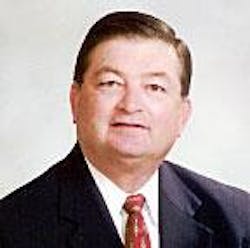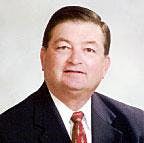Point of View - TAEP's Mills trying to bring stability to Texas indies
Volatility has plagued the independent oil and gas producers in Texas for more than a decade. And they are on that rollercoaster ride because independents are price-takers, rather than price-makers.
That's the view of Alex Mills, president of the Texas Alliance of Energy Producers, who is well aware of the problems facing the independents.
As head of the 1,900-member organization, Mills also has his hands full keeping the interests of the Texas independents from being lost in the shuffle of government policymakers.
"Our main focus," says Mills, "is the Texas Railroad Commission [TRC]. What it does has an impact on our members' lives each day."
And, he says, the Texas legislature meets every other year for 140 days, so it is important to stay on top of every bill that is introduced there.
"Independents are diverse," Mills says, "but for the most part our members in every survey want us to be involved with the Railroad Commission and legislature.
"We have some disagreements on issues," he says, "but the board works out the items and directs the staff on which way to go on issues."
Small operator problems
Mills says the smaller companies are the ones always on the bubble, and almost 2,000 of them went out of business last year in Texas alone.
Volatility in prices is only one reason independents are having trouble. A major difficulty, Mills says, is the liability an operator has at the end of a well's life. Of special concern are the difficulties small operators are encountering in obtaining bonds or other financial assurance needed to cover future well abandonment costs—new requirements imposed recently by the TRC.
"New bonding requirements, along with higher costs, are putting many small operators over the edge," says Mills, "because the risks now outweigh the rewards."
"A lot of people are putting up their homes and vehicles just for collateral on the bonds," says Mills. "It is a bad time for mom-and-pop operators in Texas.
"Because of low overhead, the independents used to be able to operate on a shoestring and still be profitable," he explains, "but now the older people who are doing the pumping themselves are just saying, 'No more.'"
Mills says many of them are just giving up and selling out.
Help from trade groups
Associations that represent independents, such as the TAEP, help their members meet a variety of business challenges. And it was the price volatility situation that played a major role in the formation of the TAEP in 2000.
Two long-time organizations—the West Central Texas Oil & Gas Association and the North Texas Oil & Gas Association (both organized in the 1930s)—merged following the price collapse of 1997-99. The leadership of both associations felt that the new organization could be more effective if the memberships were combined.
TAEP began with 1,621 members in September 2000. The board of directors wanted an aggressive, active organization that would represent members throughout Texas. TAEP's membership started to grow in East and South Texas. By its 73rd annual meeting in April, TAEP had grown to 1,934 members in 233 cities and 17 states.
TAEP opened two new offices in 2003, giving it a total of five. "We opened offices in Austin and Houston to go along with our Metroplex office in Fort Worth, our Abilene office, and our Wichita Falls headquarters office," Mills said.
The Texas alliance opened an Austin office in January when the Texas legislative session began, and it opened a Houston office in March.
Government relations continues to be TAEP's top priority, Mills says, but it offers other programs for our members, too.
"We have the traditional association programs—newsletters, meetings, seminars—but we also provide some nontraditional services, such as sales tax auditing programs, an electricity-buying cooperative, workers' compensation insurance, health insurance, and liability insurance programs," Mills says.
Oil and gas associations have had to change with the times as have TAEP members, Mills says.
"We do not have the numbers that we had 30 years ago. There are 1,894 fewer operators of record in Texas as of Feb. 26, 2003, than there were on Jan. 1, 2002," Mills says. "The actions of state and federal governments have a significant impact on these people leaving the oil and gas business when we have crude oil prices more than $25[/bbl] and gas prices above $3[/Mcf].
"That number should have been reversed; there should have been 1,894 new operators entering, not exiting, the oil and gas business," he says.
"Associations, such as the Texas alliance, need to work harder, work smarter, and spend our dollars more wisely," Mills says. "With the increase in population in Texas, we have seen the political climate change. Oil is not king anymore. We all have to work together if we are going to defeat unfriendly programs."
Future
Mills is optimistic his organization can help turn things around for the independent operators in Texas, but he is not yet ready to advise young people to get into the business.
"There is just not enough recognition of the need for domestic oil and gas," he says.
Mills feels the industry has a long way to go to get back on track. Since 1973, eight major federal laws have been passed that severely restrict oil and gas production; in Texas, there are more than 100 new regulations.
There is no way to be always in compliance at all times, Mills says, because there so many rules. And the risks for penalties are astronomical. That's why many independents are saying, "Why am I doing this?"
What can be done
All producing states face the same problem.
"Unfortunately," says Mills, "for about 30 years the situation between industry and government has been getting worse instead of better."
Mills feels industry has generally done a poor job of educating the consumers.
"Those of us who work with elected officials recognize this all the time," says Mills. "They reflect the views of their constituents."
Mills feels there are positive signs, however.
"Oklahoma has been a leader in dealing with the public with its 'checkoff program,'" says Mills. "The Oklahoma Independent Petroleum Association has done an excellent job in developing a clear, professional message that goes right to the consumer."
In the checkoff program, Oklahoma oil and gas producers pay a fee based on the output of each well. The money goes for oil and gas industry education and well site restoration.
"Solutions to the independent producers' problems won't appear overnight," says Mills, "but if we don't do anything, the hole will just get deeper and deeper."
Career highlights
Alex Mills became president of the Texas Alliance of Energy Producers, Wichita Falls, Tex., in July 2000, following the merger of the North Texas Oil & Gas Association (NTOGA) and the West Central Texas Oil & Gas Association (WCTOGA).
Employment
Mills moved to Texas in 1994 as executive vice-president of NTOGA after living in Washington, DC, for 8 years, where he served as vice-president of marketing for the Independent Petroleum Association of America. Earlier, Mills also served as executive vice-president of WCTOGA in Abilene from 1981 to 1986.
He was managing editor of the American Oil & Gas Reporter from 1978 to 1981. Mills has worked for several newspapers and television and radio stations in Texas.
Education, other activities
Mills holds a BS from the University of North Texas after serving in the US Army Security Agency. He authors a column concerning energy issues that appears in newspapers throughout Texas.
Mills is a member of the Community Advisory Council at Midwestern State University in Wichita Falls and has been a speaker at Midwestern's Distinguished Lecturer Series.
Mills served as president of the University of North Texas Alumni Association in 1997-98. He is vice-president of the Foundation For Energy Education and serves on the boards of the National Stripper Well Association, Save Domestic Oil Inc., and the Better Business Bureau.
Then-Texas Gov. Ann Richards appointed him to the Interstate Oil & Gas Compact Commission in 1994, and then-Gov. George W. Bush reappointed him in 1995.

